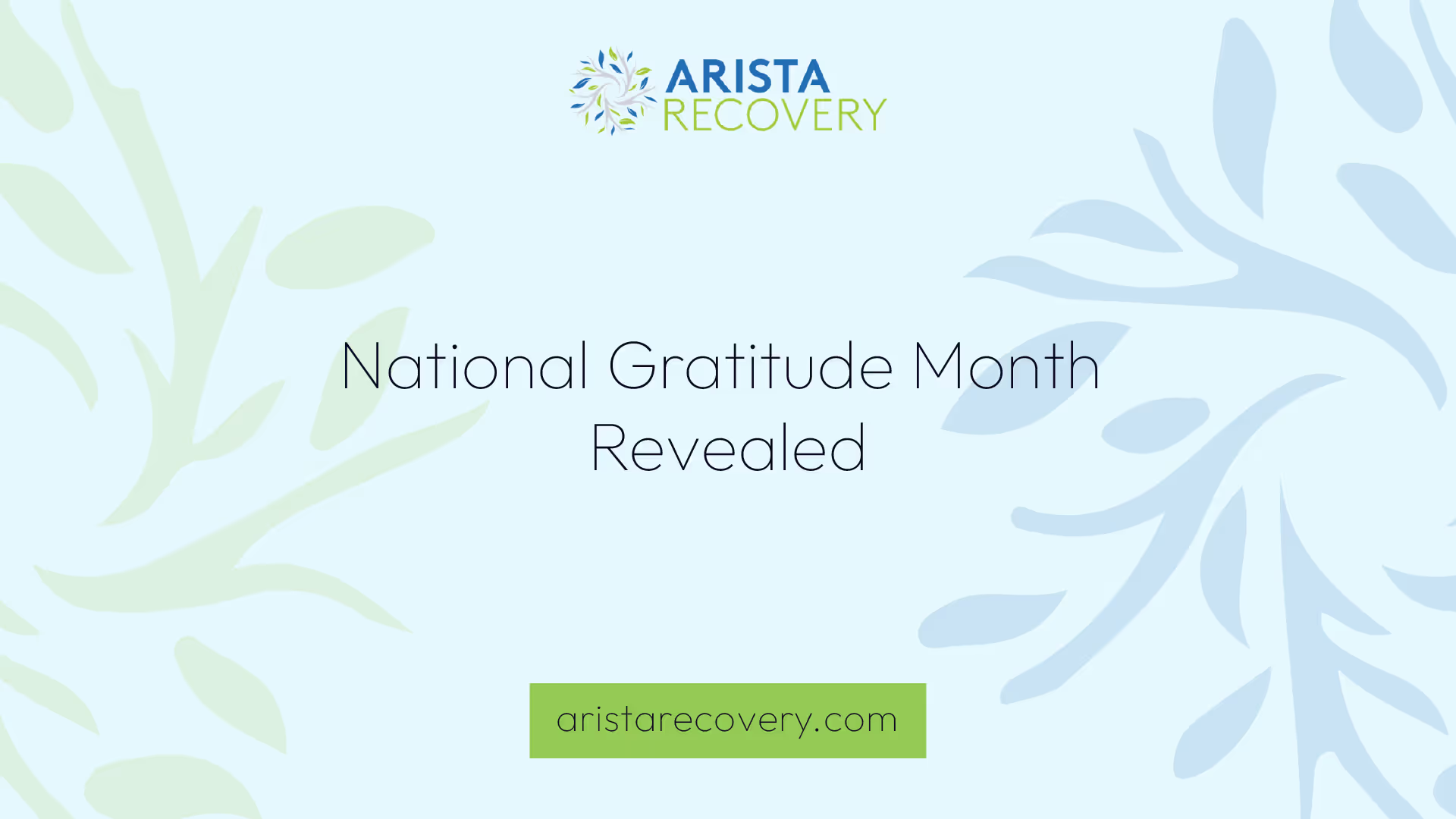
Understanding Gratitude
Gratitude is more than just a simple 'thank you.' It's a profound appreciation that can bring about lasting positivity in life. As we delve into the subject of gratitude, it's essential to understand its importance and the benefits it offers.

Importance of Gratitude
Gratitude is an emotional state that involves focusing on the positive rather than the negative aspects of life, including enjoying the little things. This perspective can lead to significant improvements in health and well-being. Rather than dwelling on the things we lack, reflecting on gratitude encourages satisfaction with ourselves and our current state. This reflection can lead to greater happiness, help individuals feel more positive emotions, savor good experiences, improve health, cope with adversity, and foster strong relationships.
Benefits of Gratitude
The power of gratitude is far-reaching, with numerous benefits to psychological, physical, and personal wellbeing. Gratitude has been proven to lead to better sleep, lower stress levels, increased exercise, and healthier eating habits [3].
Additionally, gratitude helps reduce harmful emotions like envy, resentment, anger, and frustration, leading to increased levels of positive emotions, higher happiness, and lower rates of depression.
In terms of personal benefits, gratitude can improve relationships by enhancing existing connections and fostering new friendships when appreciation is shown towards others. This expression of gratefulness can potentially lead to new opportunities [3].
In summary, gratitude plays a crucial role in shaping our emotions, relationships, and overall well-being. As we proceed to celebrate National Gratitude Month, let's remember to reflect on the things we are grateful for and the considerable impact this attitude can have on our lives.
Gratitude in the Workplace
In the context of the workplace, the role and impact of gratitude tend to be underestimated. However, the practice of gratitude can significantly improve the work environment and employee well-being, especially during National Gratitude Month.
Impact of Gratitude on Teamwork
Gratitude, when practiced within a team, can foster a sense of unity and improve teamwork. Research shows that gratitude can even help prevent instances of burnout among team members, enhancing their overall productivity and job satisfaction.
In a workplace setting, expressing appreciation for the contributions of team members can encourage a more collaborative and supportive work environment. However, it's important to note that people are less likely to express gratitude at work compared to other areas of life. Encouraging the practice of gratitude can therefore be a key step towards improving teamwork and fostering a more positive and appreciative workplace culture.
Gratitude for Employee Well-being
Beyond its impact on teamwork, gratitude also plays an important role in promoting employee well-being. A culture of appreciation and recognition can contribute to a more positive and transparent work environment, where employees feel valued and motivated.
Practicing gratitude in the workplace has been associated with a range of benefits, from increased job satisfaction to improved mental health. During National Gratitude Month, implementing practices such as saying 'Thank You' to your team, offering a helping hand, giving surprise gifts, or creating a gratitude wall can help foster an environment of gratitude and contribute to overall employee well-being.
In conclusion, gratitude in the workplace can have a significant impact on both teamwork and employee well-being. By encouraging a culture of gratitude, particularly during National Gratitude Month, organizations can create a more positive and productive work environment.
National Gratitude Month
In the spirit of acknowledging the positive aspects of life and nurturing a sense of appreciation, November is recognized as National Gratitude Month. This month-long observance is a period of reflection and a time to express gratitude, both personally and professionally.
Significance of National Gratitude Month
The importance of National Gratitude Month lies in its emphasis on the power of gratitude and its impact on overall well-being. This is a time not only to express appreciation but also to reflect on the benefits that come from recognizing the good in our lives. As highlighted by Workhuman, November offers a perfect opportunity to remind individuals about the benefits of appreciating one another.
During this period, the focus is on the positive aspects of life, which play a significant role in improving psychological, physical, and personal wellbeing. The observance encourages individuals to develop a consistent gratitude practice, acknowledging that regular expression of thanks can lead to happiness and better health.
History and Observance
National Gratitude Month has its roots in the initiative of Stacey Grewal, who emphasized the benefits of practicing gratitude daily for better health and happiness [3]. The observance was proclaimed in November of each calendar year after submission by Grewal in August 2015. It has since become a recognized event, with individuals and organizations dedicating the month to gratitude practices.
In the United States, National Gratitude Month is observed in November each year, with specific celebrations taking place on the first Friday of the month. This is a time to reflect on what we're thankful for in our professional and personal lives.
The observance of National Gratitude Month provides an opportunity for individuals to embrace and express gratitude, fostering a culture of appreciation and positivity. The practices encouraged during this month can have profound effects on personal and professional relationships, overall well-being, and the ability to navigate life's challenges with grace and resilience. As part of the national gratitude month, individuals are encouraged to make gratitude a daily habit, extending the practice beyond just the month of November.
Practices of Gratitude
Gratitude is more than just a personal practice—it can also be embraced in professional settings. As part of the National Gratitude Month, let's look into how gratitude can be expressed at work and how to create a gratitude-oriented environment.
Expressing Gratitude at Work
Practicing gratitude in the workplace can create a more appreciative, positive, and transparent work environment where people can thrive. It starts with simple gestures like saying 'Thank You' to your team. This can be done in various ways such as through verbal recognition during team meetings, or written appreciation in emails or notes.
It's also important to acknowledge the contributions of each team member. Implementing peer recognition programs can be an effective way to foster a culture of gratitude. This encourages employees to recognize and appreciate each other's efforts, thus promoting teamwork and camaraderie.
Offering a helping hand to colleagues in need is another way to express gratitude. This can be as simple as assisting a teammate with a challenging task or providing support during stressful times. By helping others, you not only show appreciation, but also create a culture of cooperation and mutual respect.
Employee compensation is another key area where gratitude can be expressed. Reviewing compensation and giving employees a raise can make them feel appreciated and valued, leading to better employee retention [4].
Creating a Gratitude Environment
Creating a gratitude-oriented environment requires intentional efforts. One way to do this is by giving surprise gifts to employees. This can be anything from books to gift cards, or even personalized items. As Vantage Circle points out, it's not the size of the gift that matters, but the sentiment behind it. Meaningful gifts can be a powerful way to express gratitude and make employees feel valued.
Another effective strategy is to create a gratitude wall. This involves setting up a dedicated space where employees can post notes expressing their gratitude towards their colleagues. This visual representation of gratitude not only encourages positivity but also serves as a constant reminder of the value of appreciation.
Organizing team-building activities or treating your employees to a meal can also foster a sense of gratitude. These activities provide opportunities for employees to bond and appreciate each other in a less formal setting.
In conclusion, expressing gratitude at work and creating a gratitude-oriented environment are important practices, especially during the National Gratitude Month. These practices not only make employees feel appreciated and valued, but also contribute to a positive and cooperative work culture.
Gratitude and Mental Health
Gratitude, especially when acknowledged during National Gratitude Month, can have profound positive effects on mental health. It can influence psychological well-being and emotional resilience, leading to healthier mental states and improved overall well-being.
Gratitude for Psychological Well-being
Gratitude has been proven to have a positive impact on psychological well-being, leading to better sleep, lower stress levels, increased exercise, and healthier eating habits.
The Harvard Medical School emphasizes that gratitude is consistently linked with increased happiness in positive psychology research. Practicing gratitude can help individuals manage mental health issues like depression and anxiety, enhance self-esteem and quality of sleep, and reduce stress levels.
Furthermore, reflecting on gratitude is an important way for people to feel satisfaction with themselves and their current state, instead of focusing on what they lack. This reflection can lead to greater happiness, help individuals feel more positive emotions, savor good experiences, improve health, cope with adversity, and foster strong relationships.
Gratitude for Emotional Resilience
Cultivating a sense of gratitude can also build emotional resilience. It helps reduce harmful emotions like envy, resentment, anger, and frustration, leading to increased levels of positive emotions, higher happiness, and lower rates of depression [3].
In addition, gratefulness can improve relationships by enhancing existing connections and fostering new friendships when appreciation is shown towards others. This can potentially lead to new opportunities and provide a strong support network, which is crucial for emotional resilience [3].
Therefore, the practice of gratitude, particularly during National Gratitude Month, can serve as a powerful tool for enhancing mental health and emotional resilience. It encourages individuals to focus on the positive aspects of their lives, thereby promoting a healthier and happier mindset.
Gratitude and Physical Health
The practice of gratitude extends beyond emotional and psychological benefits. It also has significant effects on physical health, influencing behaviors that contribute to overall well-being.
Gratitude's Impact on Physical Well-being
Gratitude has been linked to improved physical health outcomes, such as better sleep quality, lower stress levels, reduced symptoms of anxiety and depression, and enhanced immune function. Individuals who regularly express gratitude are more likely to experience these benefits, underscoring the importance of this practice in maintaining good health.
Moreover, individuals who are grateful tend to report fewer aches and pains. This suggests that gratitude may play a role in pain management, possibly by influencing perceptions of discomfort or by promoting behaviors that lead to better physical health.
Promoting Healthier Behaviors
In addition to its direct impact on physical health, gratitude also promotes healthier behaviors. Grateful individuals are more likely to engage in activities that contribute to their overall health, such as regular exercise and a balanced diet. They are also more likely to prioritize self-care, making choices that support their physical well-being.
This connection between gratitude and health-promoting behaviors underscores the potential of gratitude as a tool for encouraging healthier lifestyle choices. By fostering a sense of appreciation for one's body and health, individuals may be more motivated to engage in behaviors that support their physical well-being.
In the context of National Gratitude Month, these insights highlight the importance of gratitude as a practice that supports not only emotional and psychological health but also physical health. By incorporating gratitude into daily routines, individuals can foster a greater sense of well-being and promote healthier behaviors.
References
[1]: https://huntongroup.com/november-is-national-gratitude-month/
[2]: https://www.canvashealth.org/national-gratitude-month/
[3]: https://nationaltoday.com/national-gratitude-month/
[4]: https://blog.vantagecircle.com/national-gratitude-month/
When mental health challenges and addiction intersect, it can feel isolating. At Arista, we offer compassionate, evidence-based, and trauma-informed care to help you heal, grow, and move forward.
National Gratitude Month Revealed
You’re not alone in this.
When mental health challenges and addiction intersect, it can feel isolating. At Arista, we offer compassionate, evidence-based, and trauma-informed care to help you heal, grow, and move forward.
Support that moves with you.
You’ve taken a brave first step. At Arista Recovery, we’re here to help you continue with best-in-class care designed for long-term healing and support.
.webp)






